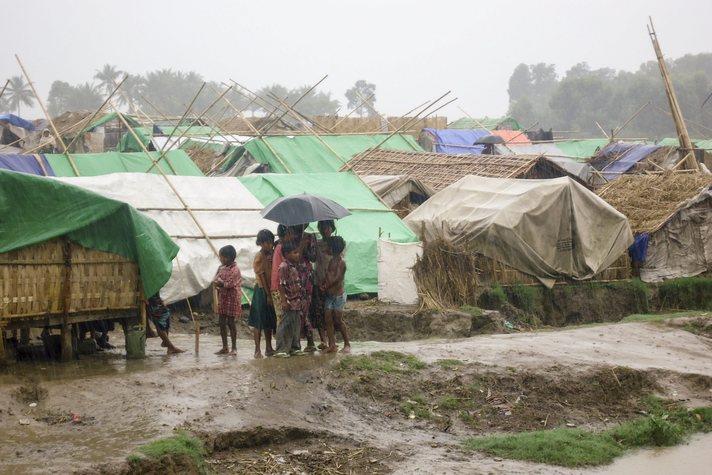Arakan Children Face Critical Trafficking Danger in Thailand

As weather conditions improve, increased numbers of Arakan (Rohingya), a Muslim minority that is effectively denied citizenship in Burma, have been crossing to Thailand in often-rickety boats. This has included numerous children, many of whom are unaccompanied by parents.
“Arakan children need safe, secure environments after fleeing violence in Burma and enduring the trauma of difficult journeys,” said Alice Farmer, children’s rights researcher at Human Rights Watch. “Yet Thailand locks up many who reach its shores, leaving them vulnerable to trafficking and further abuse.”
According to the WNN report, thousands of Arakan have passed through one of at least three “trafficking camps” in southern Thailand, where some have been held for ransom or sold to fishing boats and farms as manual laborers, according to Reuters and other media reports in December 2013.
The reports allege that Thai immigration officials collaborated with the traffickers by transferring Arakan held in Thailand to the custody of the traffickers. A high-ranking police official confirmed to journalist the existence of the camps and acknowledged an informal policy called “option two,” which relies on smuggling networks to expel Arakan migrants, including asylum seekers, from Thailand. The United Nations has called for an investigation into the reports Thai immigration officials moved refugees from Burma into human trafficking rings.
Thailand has no refugee law and does not allow Arakan to register asylum claims or to seek protection as refugees.
The 2,055 Arakan migrants Thailand permitted to enter the country in 2013 were treated as “illegal migrants” and did not receive protection as refugees under international law. The government separated families, holding adult men and some male children, including unaccompanied boys, in immigration detention centers, and detaining others, primarily women and younger children, in closed shelters run by the Ministry of Social Development and Human Security.
New Human Rights Watch research shows that Arakan held in the Social Development Ministry shelters and immigration detention centers have had no legal options for regularizing their immigration status and leaving detention. This prolonged detention with no specified maximum period violates the international legal prohibition against indefinite detention. Meanwhile, children should never be detained because of their immigration status.
In recent months, most Arakan have escaped from the immigration detention centers and closed shelters and gone further south in Thailand with the involvement of people smugglers and traffickers. Arakan told journalists that government officials played a role in these escapes by facilitating contact between the traffickers and the detainees. Children, particularly older boys, were reported to be among those trafficked. Since at least October 2013, some Arakan were “voluntarily” deported after the government gave them authorization forms in Thai – which most detainees could not read – without providing effective translation assistance. Some Arakan who agreed to voluntary deportation were not actually returned to Burma but were sold on to traffickers, according to media reports.
Source: World Bulletin



